Basement Dehumidifier
We are building a house that will have a basement (my first!!!) and it was suggested to get a dehumidifier.
What are good brands to get, prices, etc.
New to this whole game and would appreciate any information you can provide.
Thanks!
Julie
Comments (44)
schreibdave
18 years agoDont know brands, but you should get one that will drain directly into your sump so that you dont have to constantly empty the tub.
adenn1
18 years agoI have one...its a Maytag I believe. I got it at Home Depot. It was the "middle size" and ran about $180.
Now, some issues to address...get a model that allows the attachment of garden hose to allow it to drain into sink or sump pump. Otherwise...you will have to empty the tub at least daily...and I found that lifting a full tub and walking it to the sink was a disaster waiting to happen.
I found that my model was very nosiy...humidifiers in general are not going to be quiet...but if you are going to have it near somewhere you will spend time...try to find one that is quiet. This may be hard to do as I am not sure if any claim to be quiet.
Do some research and good luck
Related Professionals
Milford Mill General Contractors · New River General Contractors · Post Falls General Contractors · Schertz General Contractors · Whitman Interior Designers & Decorators · Charleston Architects & Building Designers · Vancouver Architects & Building Designers · White Oak Architects & Building Designers · Banning Flooring Contractors · Bridgewater Flooring Contractors · Conyers Flooring Contractors · Dedham Flooring Contractors · Framingham Flooring Contractors · Parma Heights Flooring Contractors · South Lake Tahoe Flooring Contractorsformulaross
18 years agoI would suggest that you hold off on buying a dehumidifier until you are sure that you will actually need one. With new construction, if the basement is built properly, the basement should be dry and not need a dehumidifier. You might want to check with the builder on what he is actually doing to provide you with a dry basement. That's not to say you won't need a sump pump - you very well could need one to keep the underslab and footings dry, that's quite a common situation.
steve_o
18 years agoIf you do end up buying a dehumidifier, Whirlpool makes them under their own brand and others ... and Whirlpool has a very good reputation for cooling (which essentially is what a dehumidifier does). My mom has one in her basement which runs 7x24 in the summer; while it's not as quiet as a fridge, it's quieter than the washer/dryer next to it.
I will echo the advice to make sure you can connect a garden hose to the collector; if the container fills before you get to empty it, the dehumidifier will cycle down and it won't -- um, dehumidify -- until you empty the container. My mom's will fill in less than 24 hours and her basement does not strike me as unusually humid ('course, maybe the dehumidifier is a bit undersized; it was supplied by the landlord who I am sure didn't know they come in sizes).
logicalone
18 years agoAround here, people generally get one, run the hose into the sump, let it run for the first year or so and then it collects dust for the next ten years. I did that to take care of the extra moisture from all that concrete contunuing to cure over the first year and now it's not needed since the stuff is pretty much done curing and the A/C running is enough to take care of anything. . If you don't plan to run central A/C, you might need one forever. Be aware they suck up a lot of electricity...about as much as your fridge.
I'd think about finding a used one in the local trading paper or even online and getting your year out of it. If I wasn't building a house I'd sell you the one I ran for a year 10 years ago when I built my current house.
coyotewi
18 years ago"I would suggest that you hold off on buying a dehumidifier until you are sure that you will actually need one. With new construction, if the basement is built properly, the basement should be dry and not need a dehumidifier. You might want to check with the builder on what he is actually doing to provide you with a dry basement. That's not to say you won't need a sump pump - you very well could need one to keep the underslab and footings dry, that's quite a common situation."
Hmmm.... I'm no expert, but my builder told me the exact opposite when we moved in to our new home last spring. According to him, you really need to run a dehumidifier in the first year because a lot of moisture will be coming out of the concrete foundation and lumber.
I wonder what is correct...
halfbarnranchjake
18 years agoWhen we had a McMansion in Georgia, I ran two. Bought one at Sears and the other at a garage sale for 1/12th the price ($20).
In my case being able to connect a hose wasn't an option as I did not have access to a sump pump. The bucket did have a connection point for a hose and then it was a matter of drilling/knocking out the small circle of plastic to allow evacuation of the water through the hose.
There are many considerations to make before buying or dismissing the idea of buying a de-humidifier. Is your home in a humid part of the country? Are dehumidifiers common in your neighborhood? Is your's a daylight basement (if so how many sides)? Is your basement finished / unfinished or partially finished? Has a masonry sealer and/or vapor barrier been installed. These are questions that you and/or your builder may be able to answer. At the end of the day, however, it will come down to you / your family's comfort in that area of the home as to whether or not you have a dehumidifier and, if so, where exactly the humidistat is set to.
blanche1951
18 years agoyou may want to check into a humidex. We have had one in our last two houses and it works wonderfully.
interior_d
18 years agoBlanche,
What was your reason/problem that made you get a Humidex and how did it help?
mrblandings
18 years agoMake sure you look at the efficiency of the unit when making your decision. You can calculate the efficiency by looking at the amount of moisture removed per day divided by the amps of the unit -- so a machine that removes twice as much moisture for the same amps would be twice as efficient and therefore cost you roughly half as much to run. Not surprisingly, the more efficient machines (e.g. Santa Fe) tend to cost a lot more. Depending on how much you run the machine, it may or may not be worth it.
minigreenhouse
18 years agoJust wondering, do we need to use a dehumidifier in the basement in the winter the first year in a new house? If we do, what setting do you set it? Ours is Woolpool, it has low, mid and high setting.
Thanks for any input.
msafirstein
18 years agoI, too, would suggest waiting until you have lived in the house a few months before deciding if you need a dehumidifier or not.
Our last house, although we never had water in our basement, the basement was damp and the dehumidifier made all the difference. In our present house, we have never run our dehumidifier as the drainage around the house is very good.
I might also add that a humidifier is the same. We had a humidifier installed on our furnace and used it maybe a month upon initial install. We really did not need it.
pouncermom
Original Author18 years agoOur builder suggested it as the house will still be "wet" and will need to draw out the moisture.
Thanks for all the responses!!!
Julielegardhome
18 years agoMy SIL said that their dehumidifier draws out most of the cold air leaving their basement comfortable enough that the heat rarely cuts on. Has anyone else heard this?
logicalone
18 years ago"My SIL said that their dehumidifier draws out most of the cold air leaving their basement comfortable enough that the heat rarely cuts on. Has anyone else heard this?"
That really makes no sense to me. In general, air with more humidity feels warmer than the same temperature air that is dry.
To the OP. Move in, buy a $10 humidity gauge at Radio Shack, decide if you need a de-humidifier.
subywu
18 years agoHow much humidity is too much? Also, is there any problem with a drainage hose going to the central basement drain in the floor?
ken_mce
18 years ago>pouncermom:
> would appreciate any information you can provide.Aim for around 50% humidity
>coyotewi (My Page) on Wed, Mar 1, 06 at 14:26
> my builder told me the exact opposite when we moved in to our new >home last spring. According to him, you really need to run a >dehumidifier in the first year because a lot of moisture will be coming >out of the concrete foundation and lumber.Don't know about the lumber, but the concrete will take months, maybe a year, to dry. It will release moisture into the room until it does.
> legardhome (My Page) on Sun, Mar 12, 06 at 19:00
>My SIL said that their dehumidifier draws out most of the cold air >leaving their basement comfortable enough that the heat rarely cuts >on. Has anyone else heard this?No, I think she may not have a crisp understanding of what is going on with it.
twiz
18 years agoBlanche - can you tell me a little more about your Humidex - how is it better than a dehumidifier? Maintenance and cost?
bus_driver
18 years agoI note some confusion about the subject of humidity. The actual concern is Relative Humidity. Buy a humidity indicator. Radio Shack has one (overpriced) and Target, Walmart, often have them. I do like the Radio Shack unit and have two of them, about $20.00 each. Made in China. I do agree that 50% is good. Over 60% will support fungus growth -mildew, mold, plus rust of steel. Less than 50% brings on respiratory problems and costs much more to achieve. Water intrusion and humidity in a basement are two different things. Humidity may be excessive with no water intrusion at all. If the basement is 68 deg for example and the outdoor temp is 80 deg with 70% humidity, the basement humidity will almost certainly be higher than 70%. Basic science. Study the subject of relative humidity for yourself. Concrete always has "water of hydration" trapped in the molecular structure of the concrete and it will always give off moisture to it's surroundings. The water of hydration is permanent to the concrete. A dehumidifier often is a necessity in the finest of basements.
jasper_60103
17 years agoFYI.
Just bought a Danby DDR583R 58 pint dehumidifier for my finished basement.
Started it this past weekend. Set it for 50% RH and it's working very well so far.
Only draw back is the fan noise. Had to move it away from the seating area. I guess I'll get used to it though.
-jasperjmcst25
17 years agoSaniDry is carried water proofing companies and is just a relabeled Santa Fe Dehumidifier. I have the Santa Fe and saved hundreds - and it does work extremely well.
Searh online for best price - I got my from sylvane.com and the matched the best onlne price I found.
jrdwyer
17 years agoI recently bought the Soleus Air 40 pint portable dehumidifier for our basement. $180 after coupon at Amazon. This thing works great so far. It is very quiet and uses very little electricity compared to other portables. You can drain it to the sump-pump well or manually dump the bucket. It has 50%, 60%, and 70% RH settings. I set it to 60%.
I find that in the spring or fall when the heat or AC is not really on and it rains a lot, a dehumidifer is needed to control RH even in a "dry" basement. Also, because we have solid hardwood floors upstairs, controlling basement RH helps to prevent excessive wood movement due to migrating water vapor.
I only wish that they could make good products like this in the USA. This one is made in China.
patrice607
17 years agoI bought a ComfortAire about a month ago on Ebay. I did a lot of research and decided that this model and the Soleus were the best. I got mine on Ebay from a company called Acecloseouts. Saved about $100.00 - still cost over $200. but well worth the investment. My son sleeps in the basement and he has an allergy to mold. We keep it set at 40% humidity.
It has really made a difference in the air quality (and smell)This model is Energy Star rated and can be hooked up to the sump pump - which will happen in a few weeks. We have to empty it every day.
mikie_gw
17 years agopatrice607
How much noise does the Comfort Aire make ?~
I'm fixing to buy online a dehumidifier and looking at Maytag because of effeciency and cost - I dont know it's noise level. It rates well by Energy Star charts on power.Comfort-Aire advertises as 'quiet opperation' yet consumes a bit more energy and best price I can find is double the best deal I can find on Maytag 45pint units.
Quiter is important but not sure how quiet Comfort Air is and if its worth twice the money in addition to the increased powerbill. If its super quiet,, I might splurge.
Soleus, so many compaints at amazon, I;m afraid of it.
thanks
tom418
17 years agoI have a Sears "Coldspot" that I've been using since 1976.
It's still going strongI do agree with the others. Get a unit which allows attachment to a hose for drainage.
gardenerchance
17 years agoLG (Goldstar, some Kenmore) is a good portable dehumidifier. The rotary compressor is energy star rated and uses only 5 - 6 amps. It operates quietly and its electronic controls allow you to program the RH%. To prevent constant cycling the unit can be set up to run in 2 or 4 hour increments. I puchased a refurbished 50 pint unit for less than $100.
I also use a Honeywell IAQ series thermostat to control my heat pump. This unit helps to control the amount of humidity in the air. It allows the a/c condensing unit to continue operating if the desired RH% has not been attained by the time temperature setpoint has been reached thereby removing more moisture from the air.
Another option is to install a permanent dehumidifier in the air handler unit of a forced air system.
IMHO, the ideal RH% range should be 40% - 60%. In addition to the aforementioned health factors, RH% below 40% can contribute to wood shrinkage (hardwood floors in the main living areas above) and static electricity. RH% above 60% can contribute to mold growth.
jrdwyer
17 years agoLooking at the manual from my SoleusAir CFM-40E, it uses only 330 Watts. So at 115 volts, that means only 2.87 amps.
As most compressors are energy hogs, you should look at this aspect of cost in addition to the inital purchase price.
For example, buying a dehumidifier that uses 1/2 the electricity could save you around $10/year if you average 1 hour per day use and electricity is $.085/KWH.
mikie_gw
17 years agofwiw;
Ratings on these consumer things leave something to be desired from a how much power is this thing going to cost me to run. You need as much as possible ?air tightness? So get that caulking gun out and start looking for air leaks, especially on the more windy days.
~Fedders 45pint unit I just bought ($69+20 ship, ebay) and have watched/logged power use for (only) one week is EnergyStar rated 1.64L/kwh - 585 watts.
.At 80F/60% humidity, it's dead on that rating.
.At 80F/50% humidity it actually removes very close to 1.0L/kwh and watts come down to about 500.
- Watts fluctuate a little, Fedders seems to have a power controller built in - only use what is needed for the load, or tries too anyhow.
.At 80F/35%RH its only using 450 - 480watts, so its saving 100 watts basically, yet only removing slightly less than .5L/kwh.Adds some heat to the area, noticed 72% PF on the meter, so maybe 28% more heat, I dunno. Haven't been paying attention to power factor at reduced loads yet. In my air conditioned environment its using a bit more a/c compressor on time to remove that heat. Or on a slightly cool day, its acting as a weak heater requiring no added heat pump at all. Cool! (Florida)
The Therma-Stor pricey units, much more efficient at real temps/RH . I'd love to have one .. sold under 'Basement Systems' Sani-Dri & 'Santa Fe' names. $1500+
airdehumidifier
17 years agoWhen constructed properly and with the appropriate air conditioning and ventilation, a basement should be dry. But many basements are particularly prone to dampness because of their poor design and ventilation. Dampness like this is a perfect breeding ground for mold and mildew, especially in basements where old books, magazines, clothing and suitcases are stored. When the humidity level goes over 50%, the water vapor in the air can cause furniture to warp, moisture to condense on walls and floors and promote growth of fungus. It will also accelerate wood rot. For those family members with allergies, a basement dehumidifier is crucial to lessen the health risks linked to toxic mold and fungus.
But before you go off to purchase a basement dehumidifier, consider taking some time to investigate the reason behind the high humidity, and then repairing the underlying problems. For example, your basement should ideally be the same temperature as the rest of your house, and not an isolated cool temperature zone. Try adding weather-stripping to any basement doors and windows. If the basement is uninsulated, youâÂÂll have to weigh the costs of adding insulation against that of running a basement dehumidifier.
Buying a basement dehumidifier will require a little planning. Know the cubic footage of the basement space that it will be going into. Also you will need to decide on getting a permanently installed unit versus a portable dehumidifier. An other shopping point is to consider are the size of the unit- will it fit in the space you are planning for it? Also be aware that some models are noisier than others, so ask for a demonstration before you buy.
A dehumidifier works on the same principle that refrigerators and air conditioners do. They pass the humid air over a bank of cold coils and in the process extract a good portion of the moisture via condensation. This condensation drips off the coils into collection pockets inside the dehumidifier. Meanwhile the dry air flow, heated somewhat by the extraction of humidity, is directed out of the unit back into the room.
Since the dehumidifier is in the basement and out of the way, many people forget that it requires some maintenance. It is important to empty and clean the collection container inside the unit periodically, otherwise it will be prone to bacterial growth. Some companies manufacture basement dehumidifiers which have no inner collection container, but simply a hose that can be run to a floor drain, and these are a perfect solution to the problem.
Here is a link that might be useful: basement dehumidifier
bostoned
17 years agoMy home is a raised ranch. The basement is a finished walk-out. I am considering the Danby DDR586R. This covers 3,400 sq ft. My home is about 2,200, this is the upper and lower level combined. I will be keeping the unit downstairs but I'd like to know if this will also dehumidify the upper level of the house as well. Also, is it pointless for me to buy the unit covering 3,400 sq ft if my home is only 2,200? If anyone owns or has any experience with this Danby, please chime in.
Thanks,
Ed
harry2020_yahoo_com
16 years agoTry Ebac Dehumidifiers - Ebac Dehumidifiers
Here is a link that might be useful: Ebac Dehumidifiers
bus_driver
16 years ago"When constructed properly and with the appropriate air conditioning and ventilation, a basement should be dry." I agree with this earlier statement. My basement is properly constructed, but is not normally heated nor air conditioned. It does have heat available, but not AC. Winter temps in the basement drop to about 58 and Summer is typically 78. This Summer it went to 81 after two weeks of 100 outside. If the outside is 100 and the basement is 81, the relative humidity in the basement will be higher than outdoors unless controlled by some type of equipment. Simple physics, no exceptions.
wajur
15 years agoThanks a lot for this thread, I read all the post, and they help me, I have the same question.
Consider the quality........Here is a link that might be useful: Dehumidifiers
elfriedamiller
12 years agoMost of the time humidity in the air can cause breathing problems. Main places in the home where humidity always fluctuates are bathroom, basement and kitchen. Last year I was facing the problem of damp basement. I used a lot of water proofing techniques. However, the problem was not so small, so I used dehumidifier for basement. My problem get solved because of this. This dehumidifier is running good.
Here is a link that might be useful: Dehumidifier Reviews
shilly_hotmail_com
12 years agoI think I have the useful site for solving your problem
Here is a link that might be useful: Cheap Dehumidifier
Chemocurl zn5b/6a Indiana
12 years agoI think I have the useful site for solving your problem
Here is a link that might be useful: Cheap Dehumidifier
Imho, you get what you pay for and CHEAP means JUNK
Who can pick out all the spammers in this tread, selling junk or promoting their sites?...
knoxmomx2
10 years agoI am going to agree with previous posters on several accounts:
1. Depending on where you live and how much annual precipitation your area receives, you may not need a humidifier.
2. Live in the house a little before you purchase a humidifier. This is a good idea for a couple of reasons, one of which is you will want to establish some kind of baseline by buying one of those little digital indoor climate readers that gives you humidity and temperature readings so you know what you're dealing with, and only then will you know the size of dehumidifier (or number of dehumidifiers) you'll need.
3. If you NEED a dehumidifier, do not go too cheap or too small. Read lots of online reviews and make sure you get the right size with the right drainage options. If you're not using the basement frequently (i.e., not planning to check on the unit several times a day during spring rainy season or the humid days of summer) and live in an area with a long summer + high humidity, you may need a larger unit with built-in pump options and a hose attachment that drains to a sink/sump pump. Too big and powerful with infrequently used pump and outlet hose options is better than too small with no pump and no hose options that you have to remember to dump every 3 hours to keep the humidity down to 70% (which is, BTW, waaay too high for most basements). You will end up spending a lot more in the end if you have to deal with mold/moisture remediation.
starraffy
10 years agocheaper brands tend to brake easily. so i go for quite pricey but worth it esp. if it functions well. our basement is humid but with our dehumidifier it maintains enough level of humidity. We got an old dehumidifier (ionmax 632) but still works well and absorbs moist easily.energy efficient too.
jackfre
10 years agoWhen I installed mine I built a shelf about 4' up the basement wall. My washer dryer were next to it and I ran a drain line to the standpipe for the washer. I did not have a sump pump and the gravity drain is absolutely the best. In the 19 yrs I was in that house I had 3 or 4 units from assorted manuf. All were over $200 and imho all were junk. Another possible solution is to use a Tjernlund AirXchange unit. They make a lot of home ventilation products.
bus_driver
10 years agoIn 10 years, I bought and junked several dehumidifiers. Most were noisy. I think the internal vibrations quickly aged the components and contributed to the failures.
The Frigidaire FAD704DUD is thus far the absolute best unit I have used. Prices vary depending upon where one shops.librarylane
2 years agoQuestion for you all: when using a dehumidifier with built in pump (to extract water to outside via a hose), what do you use as a hole to run the hose to the outside? If we remove the basement window, then moisture/hot air comes in. We are looking for a way to run the house outside (we have a crawl space, so through a doorway is not feasible). Is there a special basement window that we need to buy, which has a small hole? TIA!
debmnelson
2 years agoWe have two Aprilaire commercial type dehumidifiers in our basement that run almost constantly this summer. They were approx $1800 each including installation from a local hvac company. One is connected to our hvac system but alone wasn’t enough to keep humidity below 50% for our hardwood floors on two upper levels. So, we installed a 2nd Aprilair that drains into our sump pump. We are in a drought, but have high humidity levels outside. Our hvac and basement company recommended we set them at 45% RH to prevent mold and mildew growth. Our upstairs RH stays at around 38-42% and is very comfortable.
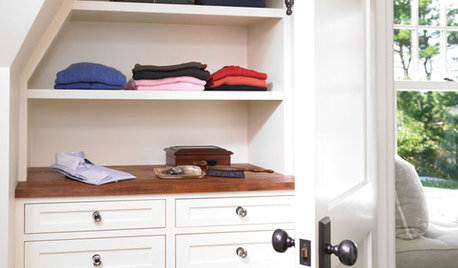
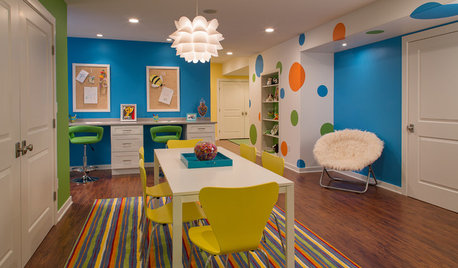
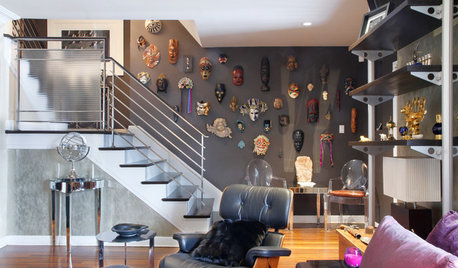
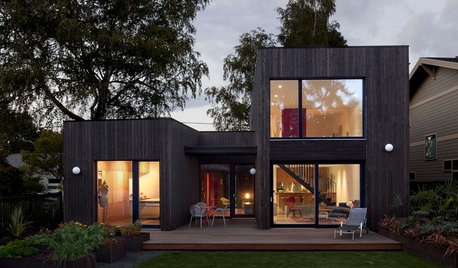
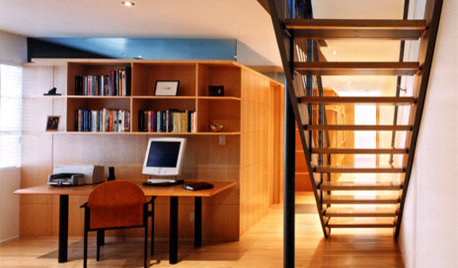
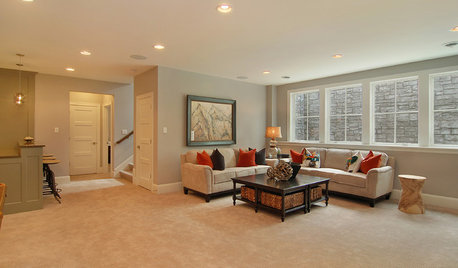
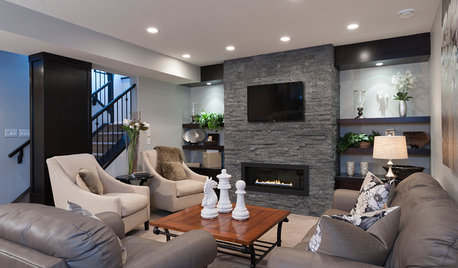
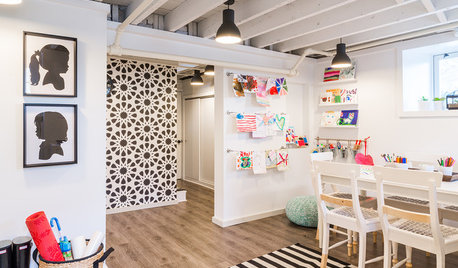
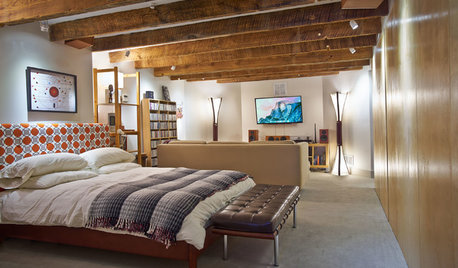
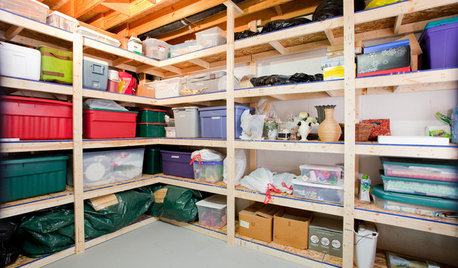






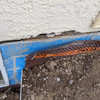
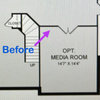
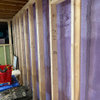
breezy_2